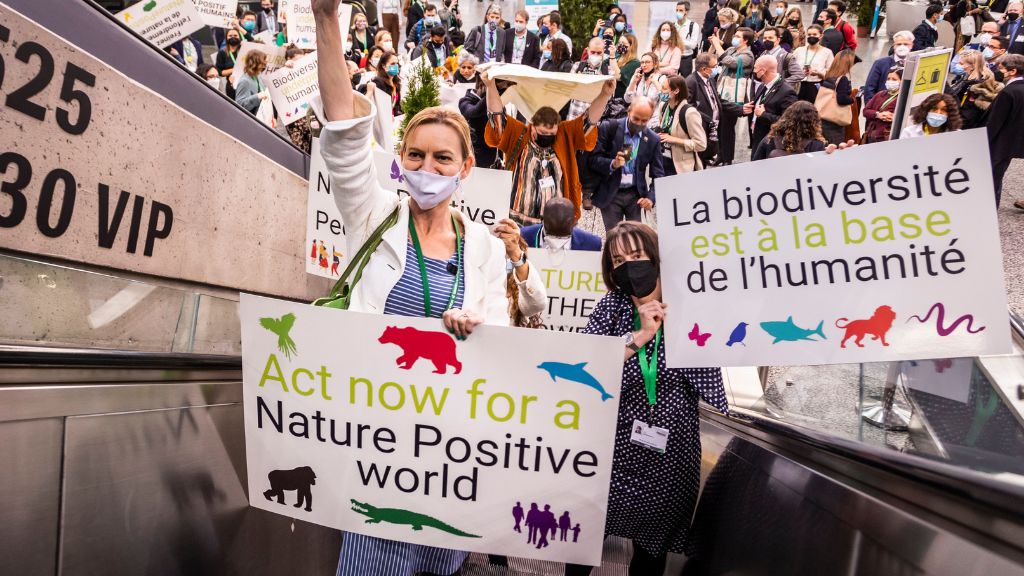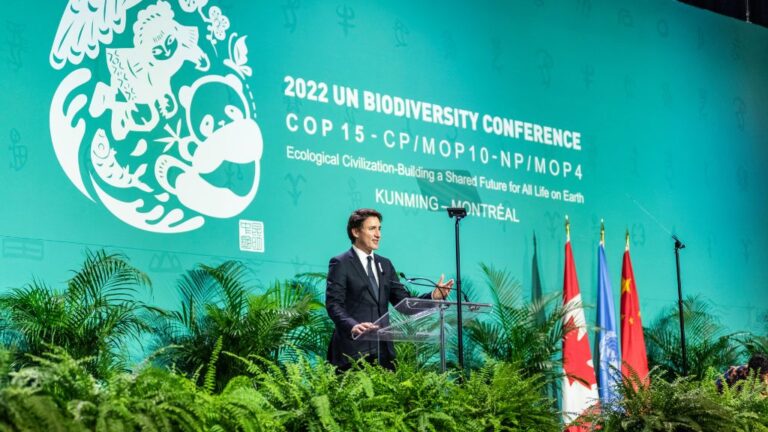In step with the World Cup finals in football, the discussion on Swedish debate and editorial pages about FIFA's responsibility for Qatar's crimes against human rights has intensified. The UN meeting COP15 in Montréal on biodiversity, where the parties must agree on the global framework for biodiversity, has also spurred this week's climate debate.
Right now, the finals of the World Cup are taking place in Qatar. On Swedish debate and editorial pages, the criticism that has been directed at Qatar regarding human rights is discussed. Last month Peter Wennblad wrote in SvD that footballers should refrain from political positions during the tournament. Last week, the journalist Lennart Ekdahl responded to the article in DN. He believes that football and politics are neither nor should they be separate, and criticizes FIFA, among other things, for the decision to ban an initiative by seven European national teams to promote LGBTQIA+ rights during the World Cup. IN Sydsvenskan underlines the author Ian Buruma the corruption scandals that marked FIFA and Qatar's exploitation of migrant workers.
At the same time, Jörgen Huitfeldt, editorial writer points out DN, criticism of what he believes to be moral preaching from the West towards Qatar. He believes that "the football World Cup could perhaps become an opportunity for a respectful exchange of views between these different worldviews". As an example, he brings up the view of homosexuality and women's rights.
- Values in these areas often take a long time to change, he writes.
The climate debate has also flourished on Swedish debate and editorial pages. Last week, the United Nations COP15 meeting on biodiversity opened in Montréal, Canada. Fanny Jönsson on Aftonbladet's leader side believes that Sweden must take responsibility in the area in Canada as well as at home. She also directs sharp criticism of the newly appointed government's climate policy.
- The government made a difference and slaughtered the grants for valuable nature by as much as 45 percent, SEK 900 million, writes Fanny Jönsson.

I DN writes a group of researchers that market solutions do not save the environment. They believe that a strong regulatory framework as a main strategy would preserve biodiversity and ecosystem services better.
- Exploiters have an incentive to underestimate the damage they cause and exaggerate the value of the compensation, they write.
In a debate reply in DN WWF representatives believe that the organization supports the researchers' proposals for stronger regulations, but add that compensation methods should be developed and applied so that they are not abused.
Soccer World Cup in Qatar
Football is and will remain politics – everything else is evasion
Lennart Ekdahl, Dagens Nyheter
Fifa always bows to the power of money
Ian Buruma (translation by Karen Söderberg), Dagens Nyheter
Nobody wins if the bullies of the West turn on Qatar
Jörgen Huitfeldt, Dagens Nyheter
COP15 in Montréal on biodiversity
Kristersson is more dangerous for giraffes than poaching
Fanny Jönsson, Aftonbladet
MP: Extremely weak by the government on the eel issue
Pär Holmgren (MP) and Emma Nohrén (MP), Svenska Dagbladet
It is not possible to compensate for natural values that have been destroyed
Malgorzata Blicharska, docent in natural resources and sustainable development, Uppsala University; Thomas Hahn, docent in ecological economics, Stockholm University; Lina Isacs, researcher in ecological economics, Uppsala University; Maria Johansson, PhD in ecology and Niak Sian Koh, researcher in sustainability science, Stockholm University, Dagens Nyheter
Ecological compensation a method that should be avoided
Magnus Emfel, chief economist, WWF and Margareta Renstrom Lindhe, expert, biodiversity & business, WWF, Dagens Nyheter
The economic system exploits nature.
Aysegül Sirakaya, postdoctoral fellow in environmental law at Lund University, South Sweden
Sweden is backing into the green future.
Jesper Sahlin, Southern Sweden
The Climate Act requires the government to change policy
Cecilia Hermansson, chair of the Climate Policy Council, docent in business administration, Royal Institute of Technology; Björn Sandén, vice chairman, professor of innovation and sustainability, Chalmers University of Technology; Erik Kjellström, professor of climatology, SMHI Rossby Centre; Elin Lerum Boasson, professor of political science, University of Oslo; Annika Nordlund, docent in psychology, Umeå University; Henrik Smith, professor of zooecology, Lund University; Patrik Söderholm, professor of economics, Luleå University of Technology; Victoria Wibeck, professor at the Department of Environmental Change, Linköping University, Dagens Nyheter

